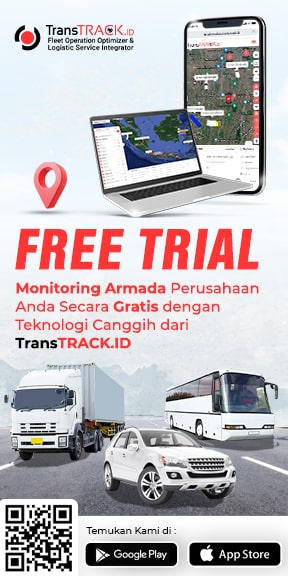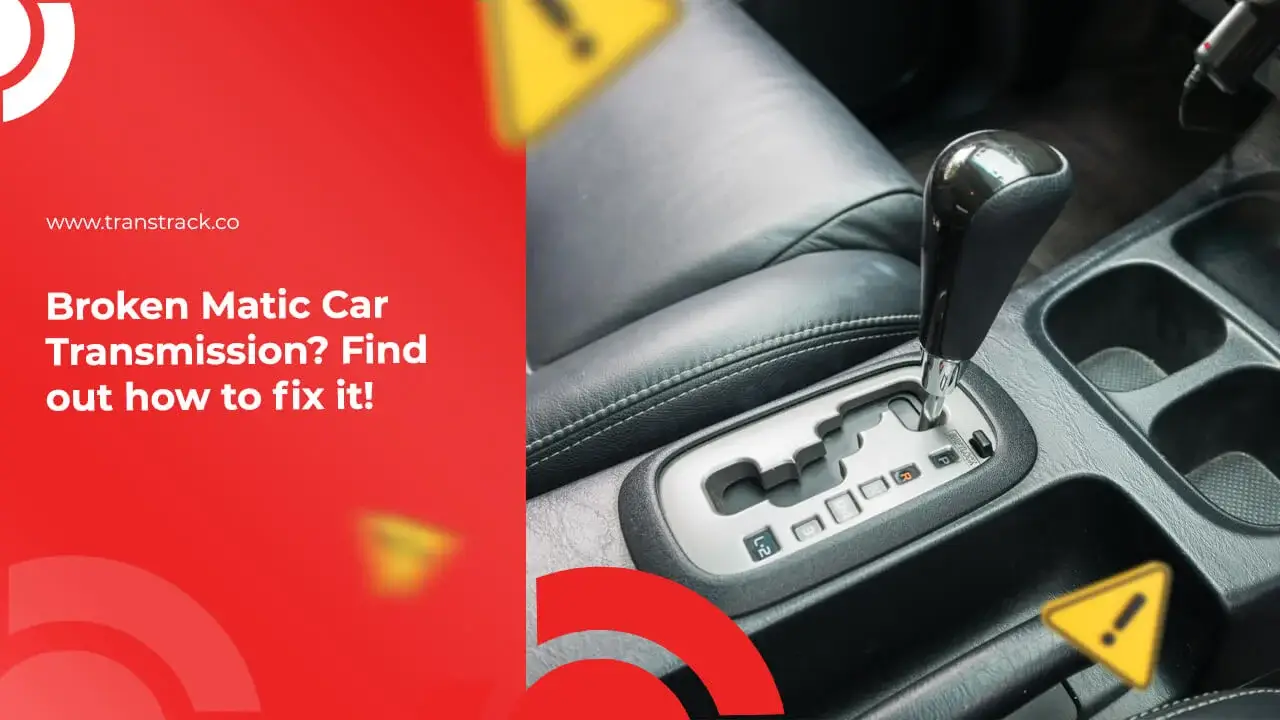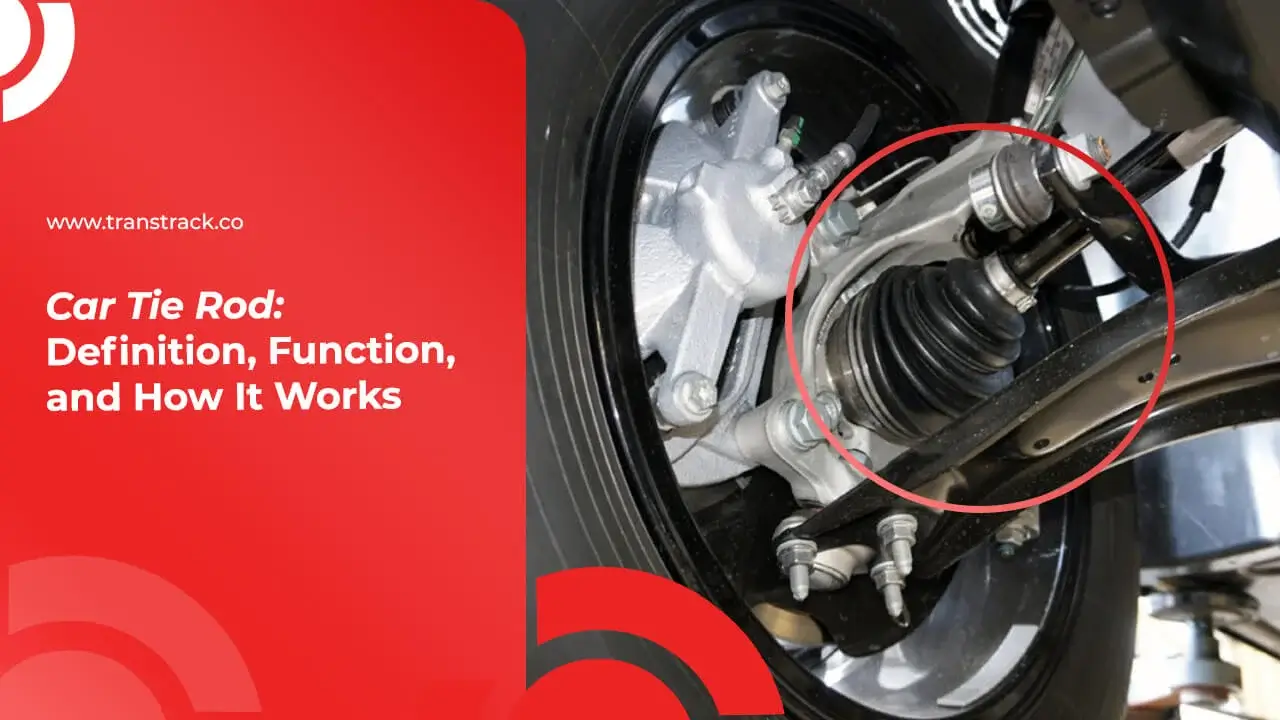Portable GPS Tracker, Know What are the Types and Functions!
A Portable GPS Tracker is a portable unit that allows users to monitor and track their location. These devices are most commonly used in vehicles as car tracking systems.
While tracking devices are similar to in-car navigation systems, there are some key differences. GPS navigation systems show drivers their location on a digital map and then provide driving instructions to get to the designated point. On the other hand, GPS trackers use GPS technology to track a vehicle’s current location and travel history. The GPS data is then broadcast to a computer, smartphone, or tablet. The following will TransTRACK explain the types and what they do!
Types of Portable GPS
We’ve probably seen movies where a spy secretly attaches a card-sized hardware package to the bottom of a car, or on the inside of the trunk, and the car drives off, allowing the spy to track exactly where the car is. But then there are other movies where there are quarter-sized hardware devices that do the same thing. So what is the difference between this equipment and many other types of GPS devices? All of these GPS tracking solutions are effective, but which one is better for our needs?
Personal or Wearable GPS Trackers
These are often the size of a watch and are used by hikers or hunters in an emergency. They also often have a button that can transmit a signal to call for help as well as their position. This usually happens through cellular networks. There are other units that are the size of a cell phone and include a screen so they are both GPS navigation and trackers. However, keep in mind that many of these devices are not actually GPS, but simply use a Bluetooth connection, like that little thing to help us find our keys at home. These non-GPS devices are lightweight and wearable, but to receive any tracking information, we need to be within a certain distance.
Vehicles and Equipment
These are slightly larger and are usually used for boats, trailers, cars, or semi-trucks. They often use power from the vehicle, so a large battery is not necessary, although it might be a good idea. We don’t want to be in the middle of nowhere with a dead car and a dead GPS tracker. There are three types:
- Wired connection
- Programmable
- Battery operated
These GPS tracking solutions use cellular connections to share the information they have collected. The data can then be accessed with a cell phone app for remote users.
Function of Portable GPS Tracker
GPS tracking is a handy tool for fleet managers for many reasons. GPS devices give us visibility into the location of our fleet vehicles, but that’s not all. Here are some other key benefits of GPS tracking.
Optimize Routes
GPS tracking systems allow us to optimize fleet routes. We can easily locate our drivers and determine which one is closest to a particular job. We can also send the closest driver and reroute the rest of our vehicles if needed. This saves us time and money, while keeping our customers happy.
Reduce Operational Costs
Whether we’re reducing fuel costs by sending drivers on more efficient routes or making better delivery decisions, GPS tracking devices can help us make cost-effective decisions based on real-time data. By giving us increased insight and visibility into our fleet operations, GPS tracking provides more data about our fleet vehicles, so our decisions can be more strategic and impactful to our business and its bottom line.
Reduced Fuel Usage and Costs
Before advances in GPS telematics, fleet managers had no way of knowing what their employees were doing each day, where they were at any given time, and where they were headed next. They had no way of knowing who to dispatch for jobs, when jobs were completed, or even if they were completed.
With GPS tracking and better dispatching, we can save on fuel usage, save time, and reduce emissions. For example, we can use GPS technology to monitor excessive speed or excessive idling, fuel-wasting behaviors. We can train drivers to drive better, saving fuel.
Increase Security
Installing GPS vehicle trackers on our fleet vehicles and assets helps improve fleet security. If vehicles or assets are stolen or lost, GPS trackers can help us locate and recover stolen or lost vehicles or assets faster. We can even set up geofences around vehicles and assets that alert us when they leave pre-defined areas or are used outside of working hours.
Reduce Overtime and Timesheet Fraud
With better trip management and electronic time records, we can reduce overtime across the fleet. We can better allocate resources based on real-time updates, so trucks don’t take longer trips and our drivers don’t spend more time on the road than they should. This helps keep our payroll clock in check.
Absence fraud occurs when drivers are paid for work they didn’t do or for time spent on non-work activities. Sometimes drivers log more hours than they worked, retroactively edit their driving hours, or log regular hours as overtime. This not only costs us money, but can also lead to incorrect billing. By using GPS and electronic logs, our payroll and billing are more accurate.
Improving Asset Utilization
GPS tracking telematics solutions can give us insights into actual arrival and departure times, stop durations, travel time from one job to another, and when our drivers are inactive. These updates can tell us if jobs were completed within the allotted time, if there were delays – and why, if detours were taken for personal business, and when delays occurred because drivers got lost. We’ll know if drivers aren’t working even though they have free time, and we can make decisions based on real-time insights to improve overall fleet utilization.
Validate Jobs Completed
Sometimes, our customers may question what we are charging them for, such as whether a driver handled their job and how many hours were spent on it. GPS tracking provides a record of where our drivers are, and shows our customers that they are working long hours on their invoices. Showing electronic proof to our customers can build trust, loyalty, and improve our customer service.
Asset Tracking
GPS fleet tracking software works for all assets, not just vehicles. If we have expensive mobile equipment, such as generators and trailers, we can monitor their movements. This is empowering to know if they are at work where they are needed, and not sitting idle and unused. We will know that they are safe and accounted for. We can also set up geofences around the workplace, so we will know when they are coming and going from each specific site.
Improving Fleet Security
Improving fleet safety saves us money and improves our company image. Now, GPS fleet tracking solutions can alert us when our drivers are speeding, stopping out of schedule, braking suddenly, or accelerating abruptly. These actions not only waste fuel and increase our fuel costs, but can also be dangerous. By monitoring these events, we can help drivers develop better and safer driving habits.
Happier Customers
No matter whether our fleet delivers products to homes or is part of a complex supply chain, our customers expect a certain type of service and convenience. Because GPS tracking telematics gives us the exact location of our fleet vehicles and we can dispatch our vehicles much more efficiently, our customers will be happier. We can give them increasingly accurate estimated arrival times (ETAs), so they will know when to expect deliveries or other services.
You can get this Portable GPS Tracker through TransTRACK. Check vehicle mobility through a portable GPS device with sensors and can be recharged. The advantages of TransTRACK’s own portable GPS tracker are a lifetime that can last up to 5 days until recharging, easy installation, check humidity and temperature, and location tracking. Start using TransTRACK’s Portable GPS Tracker and optimize your route!
Topic





